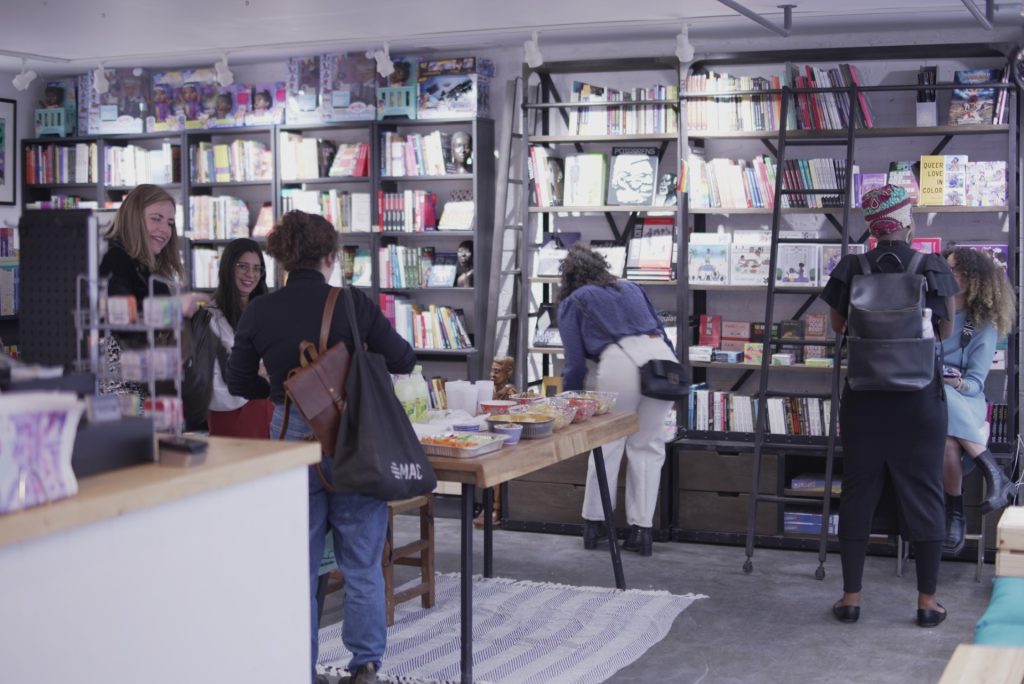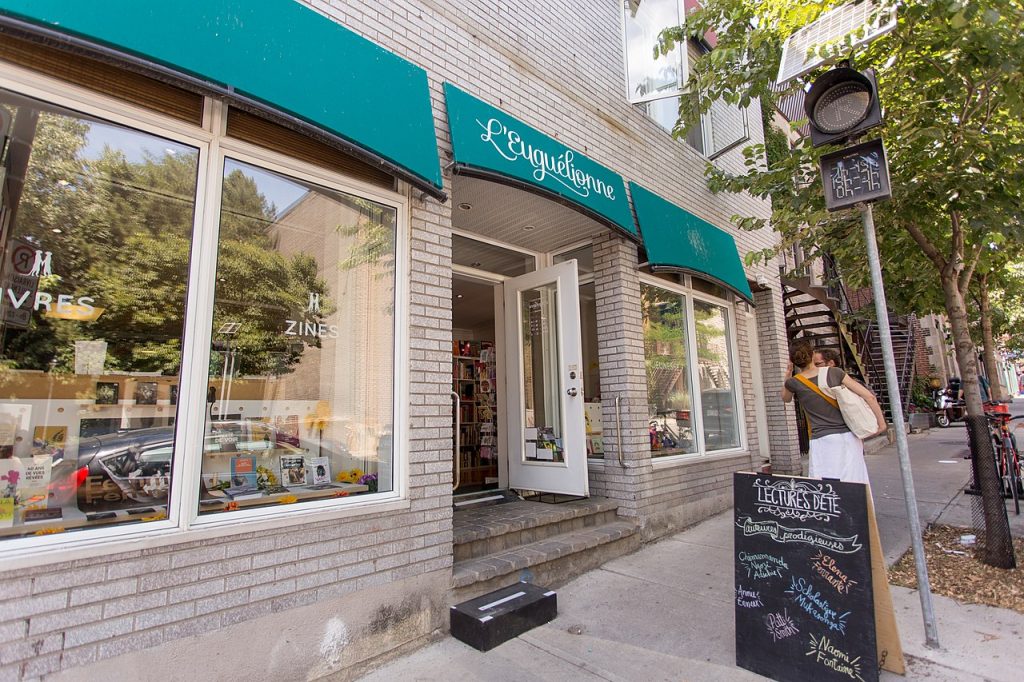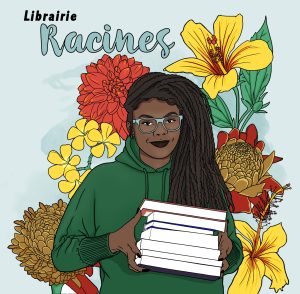In this bookshop guide, Rémy-Paulin Twahirwa takes us on a tour of some of the best independent bookshops in Montreal, Canada. If you have bookshops you’d like to recommend in a particular city, further information about contributing follows this article.
Bonjour, hi! Montreal is known for its vibrant cultural life, including the Montreal International Jazz Festival held annually in the Latin Quarter, one of the largest winter festivals in the world (Montréal en Lumière and Igloofest)–bring your best ski outfit to dance all night and have a “poutine” with your mulled wine, and being home of many renowned internationally renowned musicians (Kaytranada, Arcade Fire, Patrick Watson, Men I Trust, Chiiild, Pierre Kwenders, etc.) and various other artists. Referred to as the “Paris of North America”, the city is also home to multiple bookstores, including the well-known comic bookstore Drawn & Quarterly located in the Mile-end. Follow me for a quick tour of two other lesser-known (by tourists) independent bookstores in Montreal!
Located in the Rosemont district, a stone’s throw from Beaubien metro station, Racines (which translate as “roots”, a reference to the cult American television miniseries and book) is on the famous Plaza St-Hubert, a shopping street with over 400 shops. Founded by young owner Gabriella ‘Kinté’ Garbeau, who is deeply involved in Montréal’s cultural scene, the bookshop aims to be one of the few cultural community spaces created by and for Montreal’s indigenous and minority populations. Although the catalogue is mainly in French, it is not uncommon to find books in English, Haitian Creole, Spanish, Yoruba or Indigenous languages, reflecting the ethnic, linguistic, national and cultural diversity that makes Montreal so charming. The bookshop regularly organises and hosts cultural activities, including talks, film screenings and ‘BBQ cookouts’.
While you are here, don’t hesitate to visit Ausgang Plaza, a show venue and pop-up store next door. You can also buy a cute outfit at PONY, a shop owned by the illustrator Gabrielle Laïla Tittley (known as “Pony”).

Feminist movements were very important for Quebec’s political and cultural revolution in the 1970s. However, Montréal didn’t have a bookstore fully dedicated to feminist literature until the opening of L’Euguélionne (in honour of Louky Bersianik’s book of the same name published in 1976, considered Quebec’s first feminist novel) in 2016. The queer and feminist librarie can be found in what is locally known as the Gay Village. Founded by a collective of women in the form of a cooperative (more than 2,000 members to this day), the bookshop sells mainly titles written by and for women and/or sexual or gender minorities. Like Racines, L’Euguélionne is a community space, hosting regular cultural and literary events for a clientele that is often under-represented in mainstream bookshops. The bookshop’s catalogue ranges from comics, graphic novels and novels to essays, poetry and children’s books.

Your stop at L’Euguélionne will also allow you to visit the Gay Village, which features several LGBTQIA+ restaurants, bars and entertainment venues. Don’t hesitate to stop for a cocktail at Bar Renard, renowned for being the most stylish and appreciated gay bar in Montréal (believe me, you won’t regret it!).

Note: This bookshop guide gives the views of the author, and not the position of the LSE Review of Books blog, or of the London School of Economics and Political Science.
Banner Image Credit: R.M. Nunes on Shutterstock.
First Image credit: Illustrated artwork for Racines bookshop, courtesy of Racines.
Do you have a favourite bookshop? If there’s a bookshop that you think other students and academics should visit, then this is your chance to tell us all about it.
As part of a regular feature on LSE Review of Books, we’re asking academics and students to recommend their favourite three or four bookshops in a particular city, with the aim of building an exciting online series for our book-loving community of readers the world over.
Bookshops could be academic, alternative, multilingual, hobby-based, secret or underground institutions, second-hand outlets or connected to a university. We’d like to cover all world regions too and are particularly keen to feature cities outside of Europe and North America.
If something comes to mind, we’re looking for a brief introduction about the city and around 150 words per bookshop, detailing why each one is a must-see. Our editorial team can then find suitable photos and links to accompany the piece, though you’re welcome to supply these too. We only ask that you focus on just one city or region, and three or four bookshops within it.
Email us if you’d like to contribute: lsereviewofbooks@lse.ac.uk








